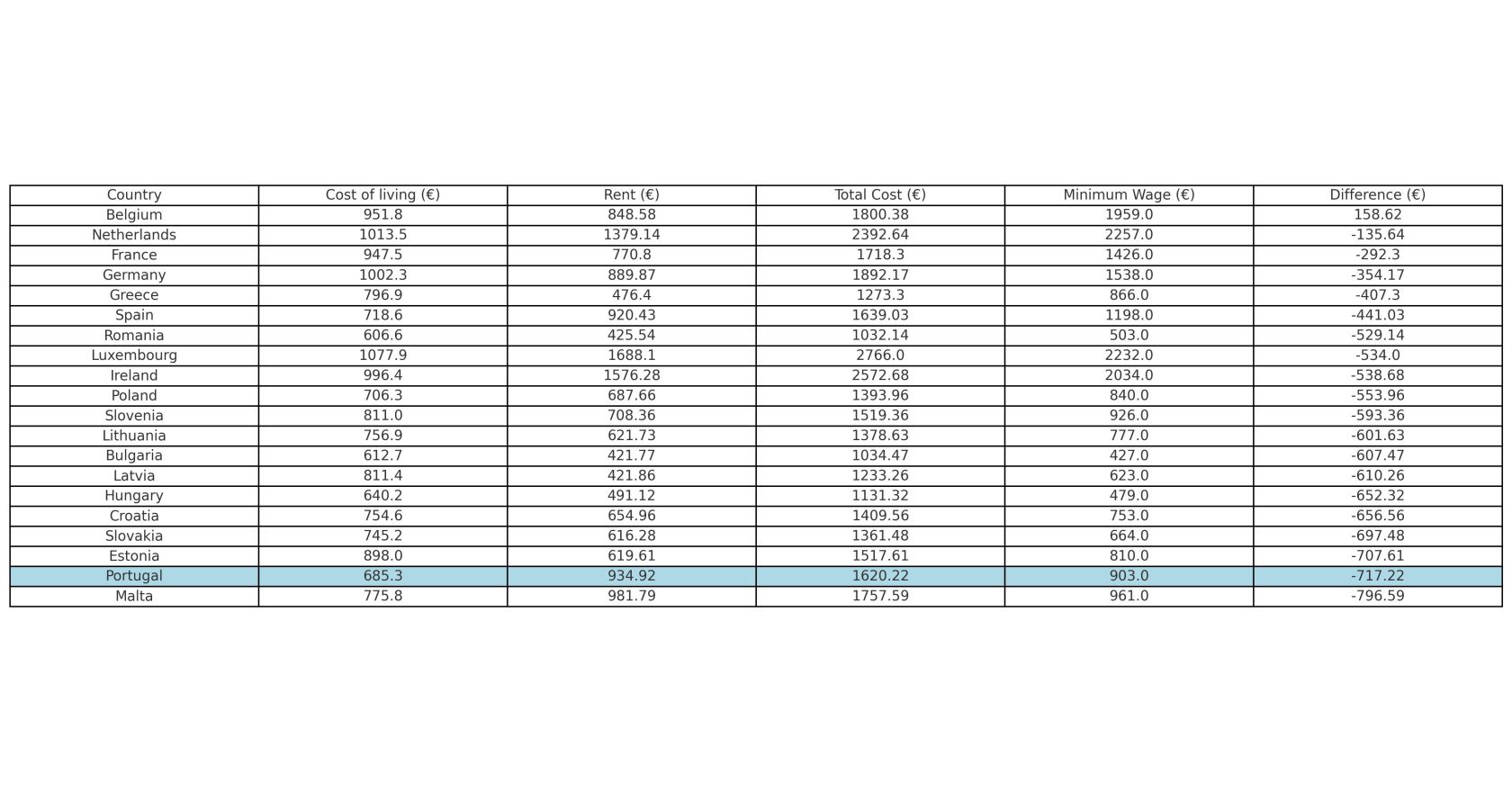Portugal is ranked in one of the lowest positions in the general table when it comes to comparing the EU minimum wage (net) with the cost of living/rent for a single person in 2025.
The table below, created using data provided by the Gisma University of Applied Science, outlines the situation across various European countries.
EU comparison of minimum wage (net) with cost of living/rent for a single person (2025)

What is the situation in Portugal?
According to the Government Program, released in June, Luís Montenegro's government aims to "guarantee an increase in the minimum wage to 1,100 euros by 2029 and create conditions for the average wage to rise to 2,000 euros by the end of this decade, based on the addition of inflation to all productivity gains."
Currently, it's worth noting that the guaranteed minimum wage is set at 870 euros, and in the 2025-2028 Wage Enhancement and Economic Growth Agreement, signed in October, the government committed to raising the national minimum wage by 50 euros per year, aiming to reach 1,020 euros by 2028.
Belgium on top
The exception applies to Belgium, where the net minimum wage exceeds the average monthly cost of living (including rent) for a single adult.
The most critical situation is found in Cyprus, where a net minimum wage of 886 euros applies and the average monthly cost of living is 1,801.90 euros. Next come countries like the Czech Republic and Malta, which have deficits of 803.19 and 796.59 euros, respectively.
Portugal finishes in the table with a deficit of 717.22 euros, considering the cost of living and the salary paid.
The study indicated that rent for a one-bedroom apartment in Portugal is 934.92 euros, which, when added to the other basic expenses for a single person, comes to 1,620.22 euros.
For a family of four, the average income remains insufficient in 16 EU countries, and Portugal is in the top three.
The largest deficits are recorded in Malta (1,468.62 euros), Greece (1,368.69 euros), and Portugal (1,339.07 euros).
On the other hand, with surpluses, are countries like Denmark (2,200.63 euros), Sweden (2,162.97 euros), and the Netherlands (1,735.76 euros).
"This study highlights an often-overlooked reality: in much of Europe, earning a minimum wage is not enough to cover the cost of living. This isn't just an economic issue; it's a question of access and opportunity, especially for young people just starting their careers," said university president Ramon O'Challaghan.
Gisma University of Applied Sciences conducted this analysis based on minimum and average incomes in EU member states, the cost of living, and average incomes.
In each case, net income from a full-time job (40 hours per week) was assumed.
This study also took into account data from Eurostat, the Organization for Economic Cooperation and Development (OECD), and national statistical offices.
Originally from the UK, Daisy has been living and working in Portugal for more than 20 years. She has worked in PR, marketing and journalism, and has been the editor of The Portugal News since 2019. Jornalista 7920

















This re-emphasises just how unequal life here is in Portugal . There are many rich people whilst so many more can't even find the money to live a decent line. Shame on those in government who do nothing to stop the mass profits and price fixing in so many areas of Portuguese society.
By Tony Henriques from Lisbon on 09 Jul 2025, 13:56
Antônio Costa and his Socialists Goverment is responsible for all the Financial mess and High Deficits in Portugal . In 2015 Antônio Costa stole the Election and formed the Goverment with all the Leftists . Son of a Bitch Antônio Costa ONLY Gave the Português Lies and Deceit.
By Aaron Noronha from Porto on 10 Jul 2025, 13:06